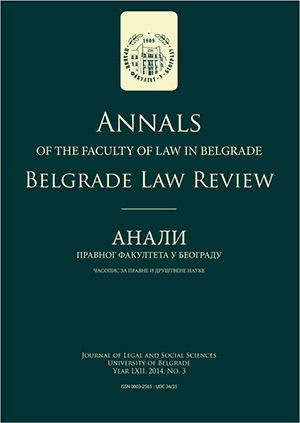ABILITY-TO-PAY PRINCIPLE IN THE MONTENEGRO TAX SYSTEM – CONSTITUTIONAL COURT CASE PRACTICE AND LEGISLATIVE APPROACH
ABILITY-TO-PAY PRINCIPLE IN THE MONTENEGRO TAX SYSTEM – CONSTITUTIONAL COURT CASE PRACTICE AND LEGISLATIVE APPROACH
Author(s): Ilija VukčevićSubject(s): Law on Economics, Fiscal Politics / Budgeting
Published by: Правни факултет Универзитета у Београду
Keywords: Principle of equality before the law; Ability-to-pay principle; Progressive taxation; Effective tax rates;
Summary/Abstract: The tax systems of many countries have faced major changes because of the global financial crisis. A budget deficit and decrease in revenues have forced the Montenegrin legislators to introduce new taxes and to increase the rates of already existing taxes. Indirect taxes (VAT, excises and custom duties) represented the biggest source of tax revenues in 2011 and 2012. Due to this fact, changes in the tax system were scrutinized in the light of their social effects, especially regarding the principle of ability-to-pay. This article will analyze the understanding of this principle in the case practice of the Constitutional Court of Montenegro and the Parliament of Montenegro. Precisely, it will show that these two important institutions do not understand this important tax principle correctly.. On one side, the analysis will show conclusions of the Constitutional Court of Montenegro that there is no legal basis for the introduction of the ability-to-pay principle in the Montenegrin tax system and that it has no authorization to assess the impact that the burden of a fiscal duty has on taxpayers are totally incorrect. On the other side, the introduction of the progressive tax scale regarding employment income earned only from a single employer had left other types of income and employment income generated from more than one employer out of the tax progression.
Journal: Анали Правног факултета у Београду
- Issue Year: 63/2014
- Issue No: 3
- Page Range: 151-166
- Page Count: 16
- Language: English

